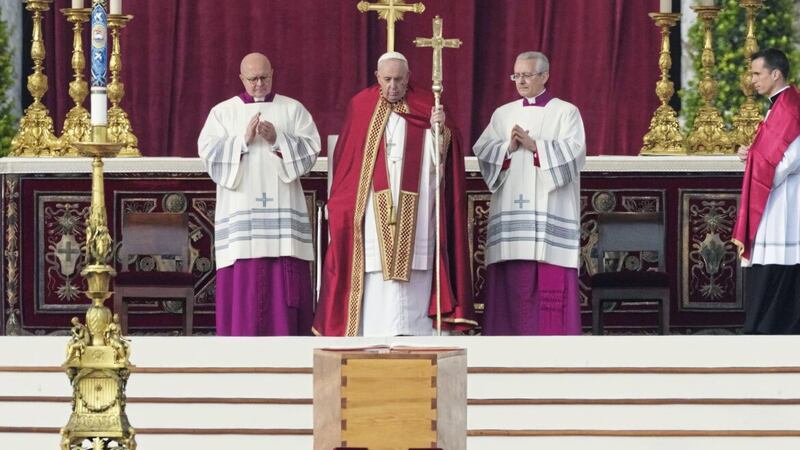I was driving past Sprucefield when Joseph Ratzinger’s election as pope was announced. Such was my surprise, that I momentarily lost sight of where I was going.
I might have driven into an M1 bridge had the Holy Spirit not intervened.
After the long pontificate of John Paul II, the last thing the Catholic Church needed was his enforcer in charge. The Church had become increasingly authoritarian and out of touch.
Given the iron grip John Paul’s courtiers had on the Church, It is perhaps not surprising that the conclave went for continuity. The electorate owed their positions to him, and many were still in a state of shock.
But clearly the Holy Spirit, whose job it was to guide their decision-making, was having an off day.
A generation earlier, the cardinal-electors had chosen the charismatic John XXIII to succeed another authoritarian pope - the still controversial Pius XII. In 2005, the Church needed another John. Instead it got a man who looked back not forward.
It was clear from the off that Cardinal Ratzinger was the wrong man at the wrong time. His choice of Benedict – patron saint of Europe – for his regnal name demonstrated a cleric whose focus was too much on the old world.
The obituarists, even critics, have been kind to Benedict – among other things they have stressed his importance as one of the great theologians of the Church. But he did not need to be pope to be a great theologian.
The need then, as now, was for a leader willing to prioritise the enormous challenges facing the global communion in Africa, Asia and the Americas.
It has that in Francis, the first pontiff from South America. But Francis, dogged now by ill-health himself, has been hampered by the ghost of his predecessor.
Benedict’s decision to resign was one of the wisest things he did. But he was wrong to cling to his title, his papal garb, and his home in the Vatican. The rival court around him undermined his successor, encouraging dissent (particularly from Trump-supporting prelates in the US).
Last week, Francis had the opportunity to lay Benedict’s ghost to rest. Despite the traditionalists’ whingeing, he paid Benedict his dues. But now he has a short window to begin the fundamental changes the Church needs, and to give the Holy Ghost a helping hand in choosing the right successor.
Given his age and frailty, and the strong likelihood that he too will lay the fisherman’s ring aside, there can be little doubt that we are in the endgame of Francis’s reign. But at least now there is incontrovertibly only one pope.
Top of his agenda should be securing his legacy. Francis has appointed two-thirds of the cardinal-electors. More cardinals from outside Europe and North America will ensure the needs of the universal Church will be heard at the next conclave. And it will dilute the influence of those cardinals seduced by populist right-wing politicians.
Francis has already brought more lay people into leadership roles – he should speed the process up, bringing more laymen and women (particularly women) into positions of authority. They should be charged with repairing the damage caused by generations of scandal – sexual and financial.
And there must be a revolution too in the role of women within the Church. Other Christian denominations have demonstrated that women are more than capable of leading liturgy and taking leadership roles within the clergy. The male priesthood is the construct of men, hell-bent on perpetuating their own power. Bringing it to an end, will begin the process of revitalising the Church.
Celibacy is another man-made mechanism to exclude people with a vocation. It is another rule that should be cast on a bonfire of vanities.
And the Church needs too to reach out to those it has castigated wrongly – not least members of the LBTQ+ community and those whose marriages have broken down.
Respect for equality, and a belief in the dignity of each human being, lies at the heart of Catholic teaching. Francis has shifted ground. Writing to the Jesuit Fr James Martin, who ministers to the gay community, the Pope repudiated those who made others feel unwelcome. “A ‘selective’ church, one of ‘pure blood’, is not Holy Mother Church, but rather a sect,” he said.
Given the size of the Catholic Church, it is not surprising that it should be assailed by problems and external threats. But if Francis is to do it lasting service, he will help save the Church from itself.









